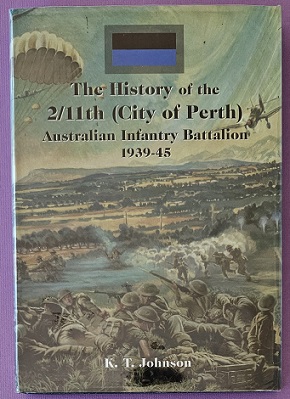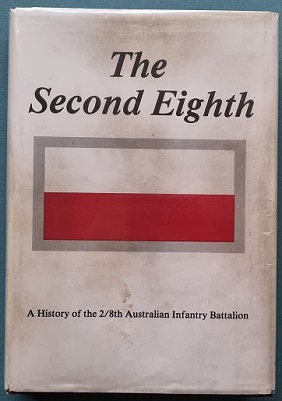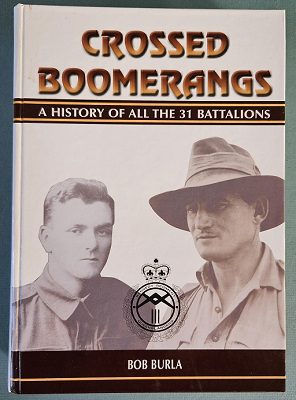Description
Title: The History of the 2/11th City of Perth Australian Infantry Battalion, 1939 – 1945
Author: Johnson, K T, Binks H.M. et al
Condition: Near Mint +
Edition: 2nd Edition
Publication Date: 2000
ISBN: 187686401X
Cover: Hard Cover with Dust Jacket – 289 pages
Comments: The detailed history of the 2/11th Battalion during it’s World War 2 service in North Africa, Middle East, Greece, Crete and in the Pacific.
The 2/11th was the first Western Australian battalion raised for service overseas during the Second World War. Its formation began with the appointment of its first commanding officer on 13 October 1939 and by 7 November it was assembling at the newly-built Northam Camp to begin training. On 30 November it left Northam to join the 18th Brigade of the 6th Australian Division, a journey that would end at another new camp at Greta in New South Wales. The battalion returned to Western Australia in the middle of March and embarked at Fremantle for service overseas on 20 April 1940.
After arriving in the Middle East on 18 May, the 2/11th trained in Palestine and Egypt. A decision to reorganise Australian infantry brigades along British lines, with three battalions instead of four, meant the 2/11th was now part of the 19th Brigade, but it remained part of the 6th Division. The battalion went into action for the first time at Bardia on 5 January 1941 and, as part of the Allied advance into Italian-occupied Libya, subsequently fought at Tobruk on 21–22 January, and to secure Derna airfield on 25 January. It was advancing to the south of Benghazi when the Italians surrendered on 7 February.
In early April 1941 the 2/11th were deployed to assist in the defence of Greece. The Allied forces, however, were unable to hold back the attacking Germans. The 2/11th withdrew from its initial positions at Kalabaka and remained on the move until it occupied rearguard positions at Brallos Pass a week later. It fought and slowed the Germans there on 24 April and then continued its withdrawal to Megara, where it was evacuated by sea on the night of 25 April. The battalion landed on Crete the next day. It was subsequently deployed with the 2/1st Battalion to defend Retimo airfield, which was held tenaciously for ten days following the landing of German paratroops on 20 May. German successes elsewhere on Crete, however, made surrender inevitable. Many 2/11th soldiers attempted to escape from Crete but only a relatively small number ultimately succeeded; most were taken prisoner.
The battalion was rebuilt in Palestine, and between mid-September 1941 and late January 1942 joined the force garrisoning Syria. It left the Middle East on 16 February 1942 and arrived at Adelaide on 16 March. The next month it was attached to the 2nd Brigade of the 4th Division to assist in defence of Western Australia. The battalion rejoined the 19th Brigade in northern Queensland in July 1943, but another 18 months would pass before it saw action again.
The 2/11th landed at Aitape in New Guinea on 13 November 1944 to undertake its only campaign against the Japanese. Patrolling, often arduous in nature, constituted the bulk of its operations. Its main areas of operation were east of the Danmap River (January 1945), and in the foothills of the Prince Alexander Range to the south of Wewak (April–July 1945). Following the Japanese surrender on 15 August, drafts of 2/11th men began returning to Australia for discharge. The remainder of the battalion departed Wewak on 10 November, and disbanded at Puckapunyal on 7 December 1945.
Includes Nominal Roll




